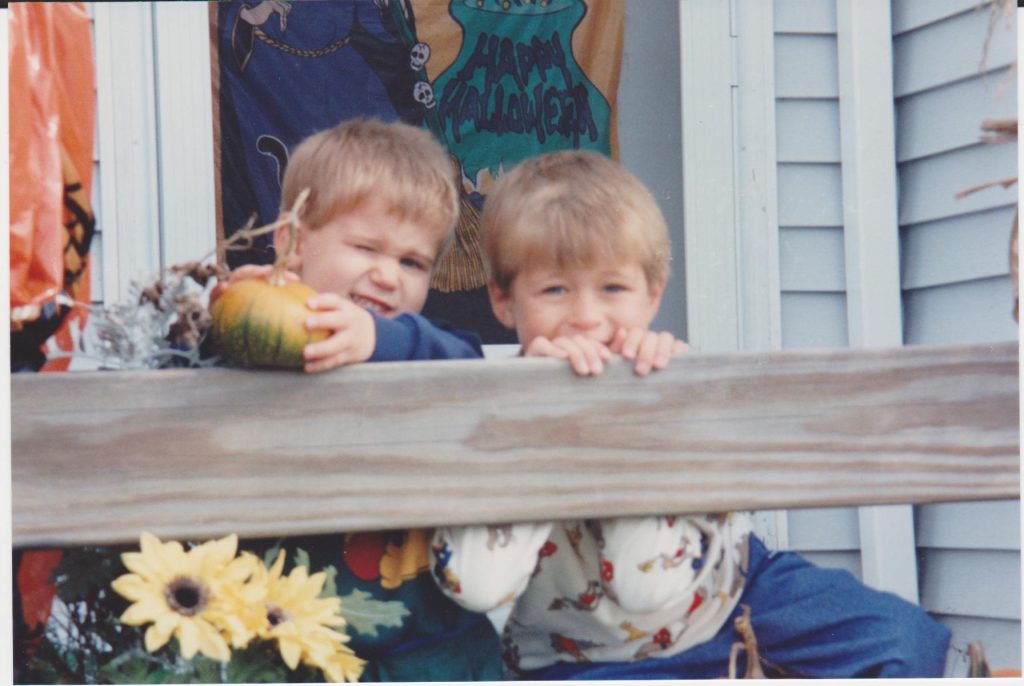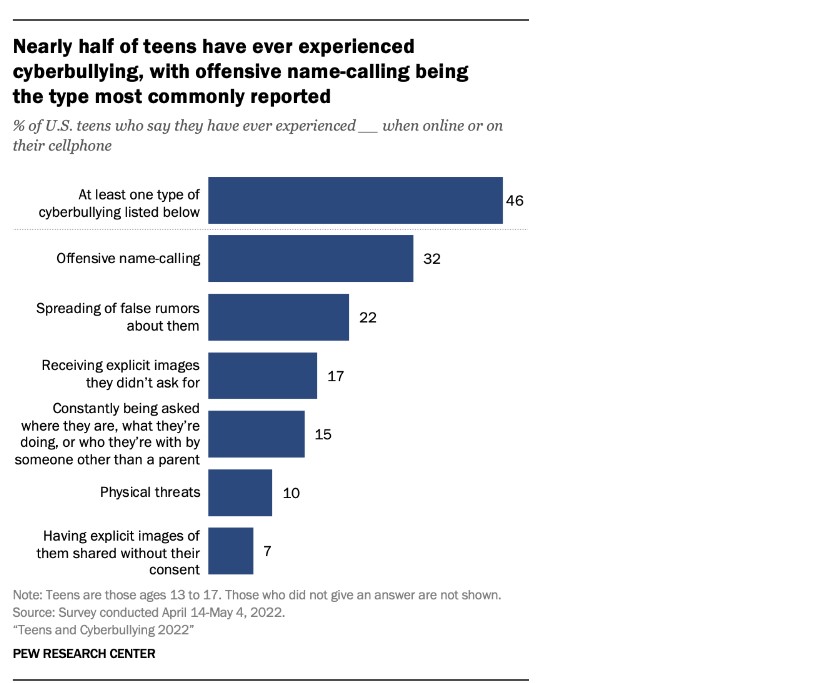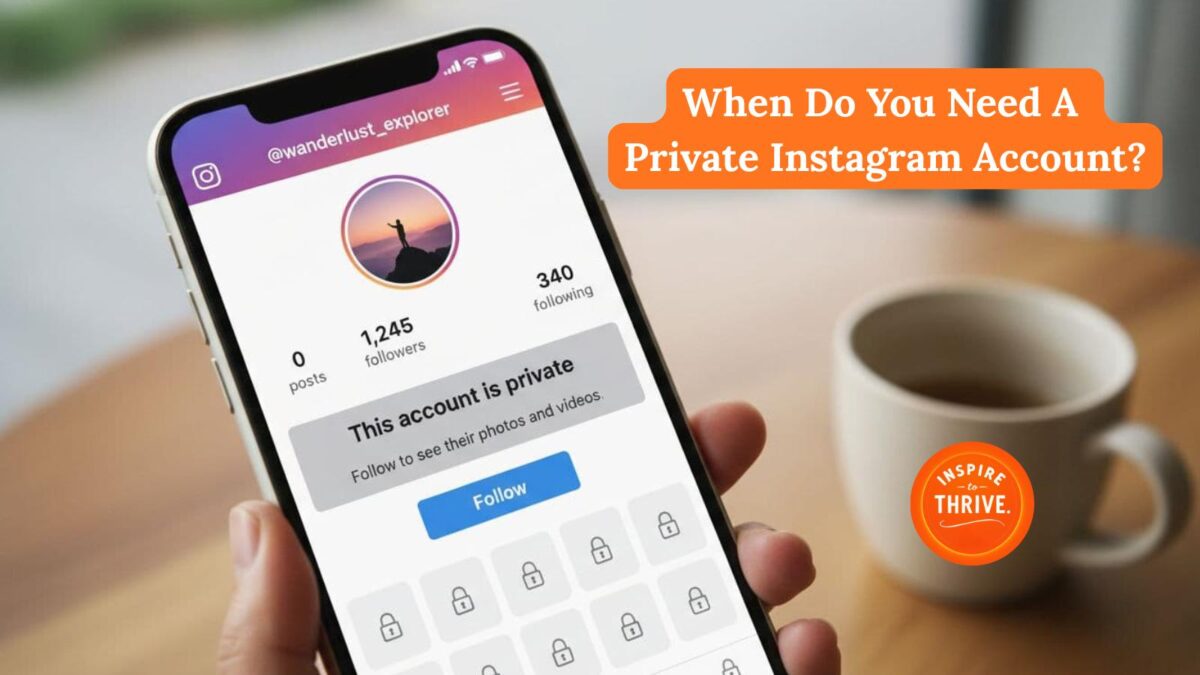Social media has become an integral part of our daily lives, particularly for children and teenagers. While social media can be a valuable tool for connecting with friends and family, sharing experiences, and learning new things, there are also risks and dangers that parents need to be aware of. Many parents are asking, “Should I monitor my child’s social media account?”
In this blog post, I’ll explore the importance of social media supervision to protect your children. It includes the risks for children, and at what age parents should consider monitoring their children’s online activity as well as cell phone activity.
Table of Contents
Back In The Day As A Parent Of Social Media Kids
Being a parent myself is what got me on social media back in the early 2000s. My oldest son started on MySpace.
I had to set up an account to learn what that was about and before long he was on Facebook. Of course, within a few months, I got a call from the vice-principle.
I learned my son and other friends impersonated another friend online. Luckily, the vice-principle was young at the time and was up on all the social media technology.
He became the head of social media and technology at all the schools in town before becoming the Principle years later at the high school.
So I had to jump onto Facebook and keep up on what my son was doing and later my youngest joined. Back then, there were no tools to check on what your children were doing online. It wasn’t easy!

Do Experts Recommend a Monitoring Age Cutoff?
Experts don’t set a strict age cutoff for monitoring kids on social media. They point to platform minimums, usually 13 under COPPA rules, then recommend close, hands-on oversight through the early teens.
That means you review friend lists, privacy settings, messages, and time spent, with your child present when possible. As teens show judgment, you taper oversight in stages, often 15 to 17, while keeping clear rules, check-ins, and consequences.
Think gradual independence, not a flip of a switch. Use parental controls, limit late-night use, and keep accounts private. Keep talk open about scams, bullying, grooming, and algorithms.
If grades slip or mood changes, tighten controls. No universal cutoff fits every family, so match monitoring to maturity, behavior, and risk.
How Do We Define Social Media Monitoring?
Social media monitoring for children means actively keeping track of their online activity. This can ensure they’re safe and aware of potential risks.
It involves checking the content they post, the accounts they follow, and the interactions they’re having on platforms like Instagram, Snapchat, TikTok, or others.
Parents use tools like monitoring apps or built-in platform settings to set boundaries, filter inappropriate content, and track suspicious behavior. It’s not about spying but about guiding kids toward responsible digital habits.
Open communication is key—explain why you’re monitoring and involve them in the process to build trust and understanding.
Cyberbullying Online
Firstly, it’s important to acknowledge that social media use can expose children to various risks like cyberbullying, online predators, and inappropriate content. Social media sites allow users to communicate with strangers anonymously, making it hard to determine whether or not the person they’re talking to is trustworthy.
Additionally, popular social media platforms are rife with cyberbullying, grooming, and other online threats. With that in mind, children need to have the appropriate tools at their disposal to stay secure and alert.
Parents can play a crucial role in achieving that by keeping a close eye on their children’s social media use.

What Social Network Sites Have The Most Cyberbullying?
Social media networks with the most cyberbullying include platforms like Facebook, Instagram, TwitterX , and Snapchat. These sites have seen a rise in online harassment and abusive behavior.
Users often target others with hurtful comments, threats, and malicious content. The anonymous nature of some features on these networks can make it easier for cyberbullies to operate without consequences.
Additionally, the widespread reach of these platforms means that harmful messages can quickly spread to a large audience. That may amplify the impact of cyberbullying incidents.
It is crucial for you to be vigilant and report any instances of cyberbullying to help create safer online environments.
At What Age Should Parents Monitor Their Children’s Social Media Accounts?
Secondly, at what age should parents consider checking on their child’s social network usage? This is an important consideration because different social media platforms have different age limits to sign up.
Some popular social media platforms like Facebook require users to be 13 or over, while others like Instagram or the new Threads also require users to be 13. (But how can they verify them?)
Regardless of legal age requirements suggested by social media platforms, parents should consider their child’s maturity to handle the extra responsibility that comes with using social media.
And then there is the porn that comes along on the social networks. Even though Meta is working at eliminating it, spammers and others find a way around to share porn on the networks.
Parents should also determine which social media platforms their children are allowed to use and set out clear rules on how they should be utilized.
Lisa, Inspire To Thrive
Open Communication
Thirdly, open communication between parents and their children is essential when it comes to being safe online and on their mobile devices. Parents should explain to their children the dangers associated with social media and how to identify and avoid them.
It’s also important to listen to their child and answer any questions they might have about social media use. Parents should try to maintain a good relationship with their children to help prevent them from keeping secrets.
Thus not taking unnecessary risks on social media or other digital platforms.
Social Media Education
Fourthly, parents should educate themselves on social media by researching the popular social media platforms’ safe use policies along with ways to limit access to their social media usage.
Additionally, parents must use sophisticated parental control tools available online and control apps setting screen time controls effectively. Therefore, block the use of inappropriate websites or apps on their devices.
Several apps allow parents to manage their kids’ screen time, block messaging applications, and keep an eye on their online activity.
Social Reputation Tools
Parents could also use brand reputation tools for their children. They would be able to see what others are saying about their children on social media networks or in forums or blogs.
These type of reputation tools can send emails or text alerts when their name is mentioned on social media.
This would be another way to know if anyone is trying to bully their children online.
Different Parental Monitoring Apps
Here are some of the most popular parental monitoring apps for learning what your children are doing on their phones and/or social media. (Some plans are for one device , see details in the links below.)
| mSpy | mSpy is ideal for parents needing real-time tracking of calls, texts, and social media with a quick 5-minute setup. | Starts at $11.66/month (annual plan) |
| Qustodio | Qustodio offers robust content blocking and detailed activity logs, perfect for tech-savvy parents seeking customization. | Starts at $54.95/year |
| Bark | Bark uses AI to monitor texts, emails, and over 30 social media platforms, alerting parents to potential issues like cyberbullying. | Starts at $14/month or $168/year |
| Phonyspy | Phonyspy presents a unique improved version among the text message spy apps. | from $29.99/month |
| FamilyTime | FamilyTime provides unique features like PickMeUp Requests and a panic button, ideal for younger kids’ safety. | Starts at $29/year |
| Canopy | Canopy excels in filtering explicit content with a 99.8% accuracy rate, focusing on digital safety over extensive monitoring. | Around $90/year |
| UMobix | uMobix offers live control and deleted message recovery, making it a top choice for comprehensive social media monitoring. | Starts at $11.66/month (annual plan) |
| Boomerang | Boomerang is budget-friendly with features like geofencing and new app download prevention, though it’s mobile-only. | $16/year for one device |
| Glassagram | Easily view deleted or expired Instagram stories and posts for up to 3 months directly from your user space. (no need to have IG yourself) | $29.99/month to $49.99/month |
| Mobicip | Mobicip provides affordable, real-time web filtering and screen time scheduling across multiple platforms, perfect for balanced control. | Starts at $2.99/month or $35.88/year |
What are the Pros and Cons of Monitoring Social Media?
Monitoring your child’s social media use has clear advantages but also important downsides.
On the positive side, it can help you spot potential dangers like cyberbullying, inappropriate content, or risky online behavior before they escalate. It also allows you to guide them toward healthier digital habits and reinforce family values.
However, it can also create trust issues if done secretly or too invasively, leading your child to feel like their privacy is being violated. Balancing safety with respect is critical—open conversations about why you’re monitoring and setting clear boundaries can make it more effective and less intrusive.
Conclusion: Why Parents Should Monitor Their Children’s Social Media Usage
In conclusion, social media offers many opportunities for children, but it also presents risks and dangers that parents must be aware of. By monitoring their children’s social media activity, parents can help establish safe online behaviors while protecting them from harm.
Parents must have an open and honest conversation with their children regarding the risks of social media use at the right age. Using parental controls is not an invasion of privacy, but rather a crucial step to ensuring children’s safety online.
So yes, parents should monitor their children’s social media activity and adopt appropriate measures to ensure their online safety and well-being.
Have you been monitoring your child’s social media accounts? I’d love to hear about your experiences in doing so.
People Also Ask: Why Parents Should Monitor Their Children’s Social Media
Parents should monitor them because many children have left home to meet someone they met on social media and others have been bullied or worse hurt.
By having their passwords you could log in to see activity or you could purchase tools to monitor them easily with an app.
Some schools have purchased tools to monitor the kid’s use of social media to prevent bullying and violence.
Most of the popular social media sites set 13 as the starting age.
Yes, they may say they are older than they are.
The best way is to let them know you can monitor them so they are not shocked when they learn you have monitored their social media accounts.
Have a conversation with them to educate them on the harm that could be done and try to use other monitoring apps that they can’t bypass. Technology changes, so stay up to date with it.

- How To Stop Instagram Spam Comments Fast: Quick Fixes - February 12, 2026
- Facebook Page Posts in 2026– Who Sees Them Anymore? - February 12, 2026
- Fedica for LinkedIn: Schedule, Recycle, and Track Posts in One Place - February 11, 2026




Hey Lisa, As a very protective parent myself, I think it’s of utmost important to know who they’re talking to and track their accounts. There’s lots of dangers for kids of all ages online, and most of them are not aware of it. It’s our job as parents to educate them as best we can, and try our best to ensure they’re not being targeted by shady people online. Today when I checked my daughters whatsapp, there was a random message from an unknown number saying “Hello, can we chat?” I mean these kind of things are simply dangerous which is why its critical we monitor their accounts. Many kinds would get annoyed at this, but honestly, their safety comes first, so I just don’t care. I just try my best to make them understand.
Hi Matthew, I agree it’s quite dangerous today for little ones and teenagers to be online without being tracked. I’m glad to hear you monitor each account and have caught things along the way. It’s not easy to make them understand it now but they will when they get older. Thanks for your input and have a great weekend ahead Matthew.
Excellent topic of discussion Lisa that more parents – and kids – need to talk about. When our generations were kids we dealt only with offline situations as far as drama, etc. Now all is scale, for kids, because the one meanie offline can mushroom into 10 or 50 or 100 Likes in response to juvenile pettiness, criticism, mocking, etc. My friends – at least close ones – have not allowed their kids to be on social media until late grade school or high school. I see why.
Ryan
Hi Ryan, thank you. I agree, and it bothers me to see them so attached to their phones and social media at such a young age. I think it hinders their communication skills for face to face discussions. Thanks for you input and make it a great day in London Ryan.